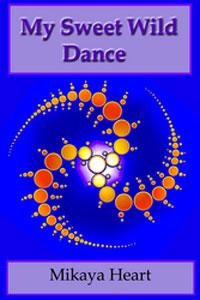My Sweet Wild Dance

It is always difficult for me, as a writer, to review another’s work. I find sentiment and solidarity too often hold sway, making me a bit kinder than I should be to those whose ghastly prose tarnishes the craft I have spent so many long years attempting to master. As someone’s whose known both praise and condemnation in my own career, I find myself, perhaps far too often, seeking some positive contribution I can offer to a fellow wordsmith, something which at least partially redeems the frequently soul-crushing process of reading critiques of one‘s own work. After wading through My Sweet Wild Dance, reluctantly in the end and with only the reviewer’s duty as motivation, I find there is neither sentiment nor solidarity enough in the world.
The language itself is not truly horrific, but neither does it offer any literary value. The constant use of the present tense, which can offer such intensity and immediacy in the right hands, seems a meaningless affectation here. The descriptions are rather vague and well, nondescript. The much-ballyhooed dialect shift between British and American English is barely noticeable as neither is written very convincingly as a distinct dialect. And there are no sentences or passages that grab the senses or make you want to read them again to relive the experience. The words are just there.
So, language is a but not the problem. It’s the plot, the perspective, and the characters that truly offend. Although purportedly the true story of “an extraordinary and courageous woman,” My Sweet Wild Dance comes off as nothing more than New Age navel-gazing, devoid of both empathy for the other characters that people the book and any sign that either the author or the protagonist has done enough real self-reflection to confront her own perceptions or prejudices. The central narcissism of the book is best exemplified, I think, in the author’s choice to deny many of her male characters a unique identity, labeling them all John as “what matters is how they affect the protagonist, Chris, at that time period.” No female character is similarly treated; each is given her own name at least. However, none of the characters, male or female, take on any real depth or humanity. They are merely one-dimensional stage props for Chris, who manages to be only two-dimensional herself while flitting disjointedly from one poorly portrayed, stereotypical life-event to another.
The worst aspect of the book is the gratuitous misandry that simply leaps from the page. Through most of the story, we are presented ad nauseum with one detestable male character after another, not a single one given the option of being merely unlikable. Instead, men are indicted, by both implication and outright accusation, of being nothing more than child abusers, molesters, and rapists, devoid of any sympathy for or true emotional connection with anyone or anything beyond their own genitals. We do eventually see a male character with some humanity, but he is set up to apologize for his sex and is described as if he, a man of integrity, is some sort of rare species and thus further proof of the depravity of the overwhelming majority of men.
The problems only compound themselves from there as we travel into the land of New Age woo and pseudo-empowerment. But really, it’s no more worth further dissection than it is worth reading.